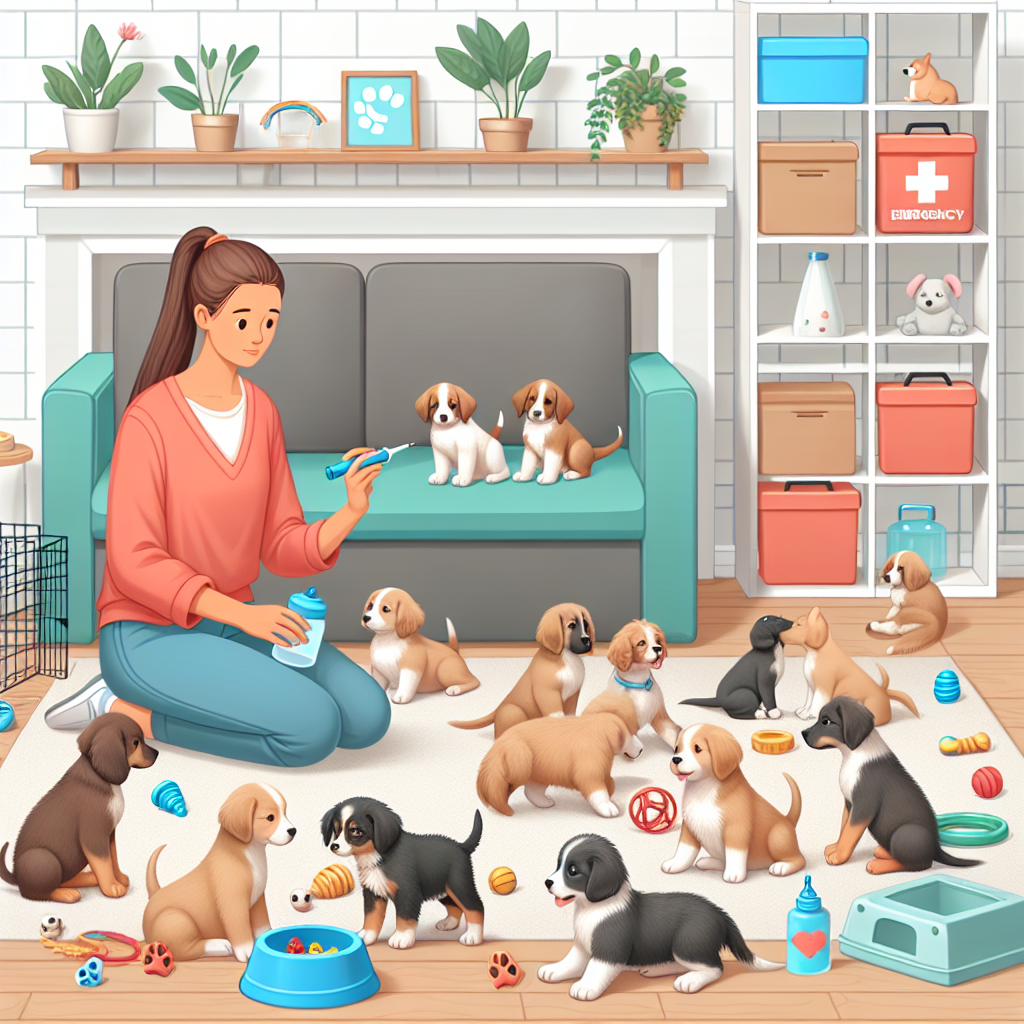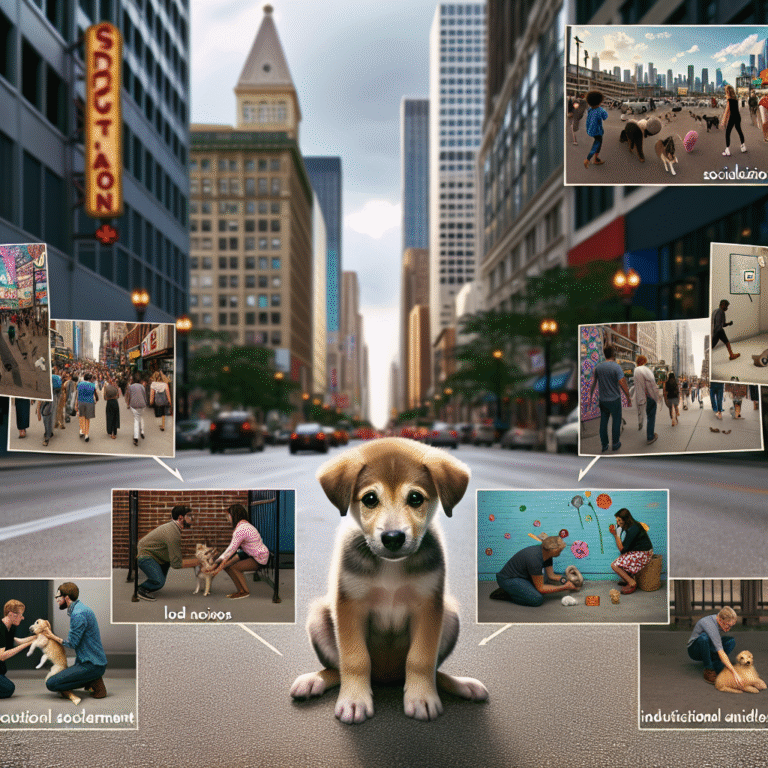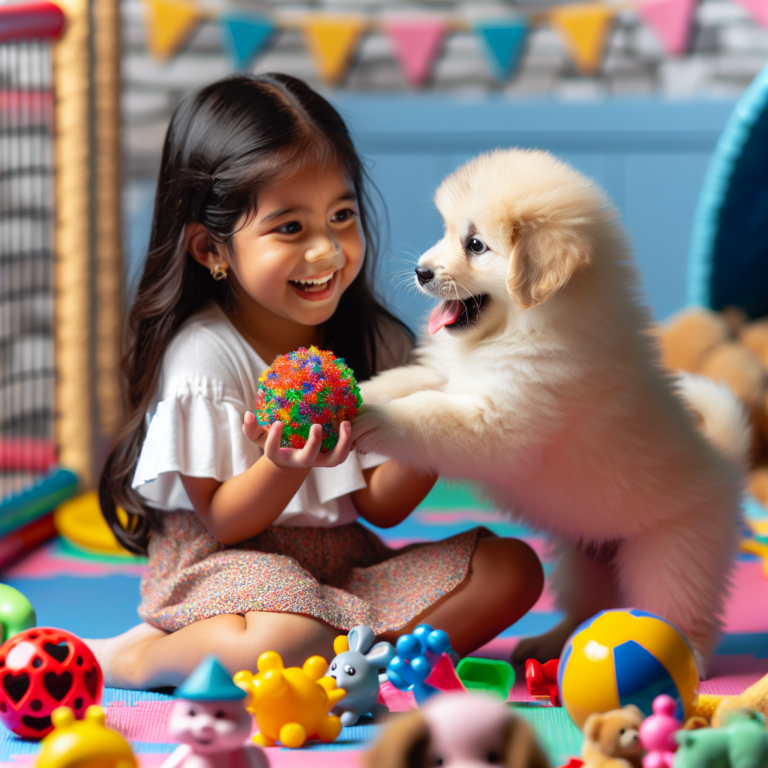Puppy socialization plays a crucial role in developing a well-adjusted pet. Hosting puppy playdates is a fun and effective way to promote social skills, boost confidence, and encourage positive behaviors in young dogs. By organizing these events at home, you can ensure a controlled and safe environment for your puppy and their furry friends.
Understanding Puppy Socialization
Socialization involves exposing puppies to various environments, people, and other animals so they can learn to interact appropriately. Puppies that are not well-socialized may develop fear or aggression towards unfamiliar situations. Playdates offer a structured way to introduce puppies to new experiences, helping them build social skills and confidence.
According to the American Kennel Club (AKC), “Proper socialization can make the difference between a dog that might be afraid…and a dog who feels comfortable and safe in his environment.” Playdates can effectively mitigate common challenges by offering positive interactions.
Preparing for the Playdate
Selecting Compatible Playmates
Choosing the right companions for your puppy is essential for a successful playdate. Consider factors such as age, size, temperament, and vaccination status to ensure all participants are compatible and healthy. Mismatched playmates can lead to conflicts or stress, undermining the socialization process.
Safe Environment Setup
Creating a safe and secure play area is crucial. Puppy-proof your home or yard by removing hazards and blocking escape routes. Ensure that the space allows for free movement while keeping the puppies within sight.
Gathering Necessary Supplies
Having the right supplies on hand ensures the playdate progresses smoothly. Provide a variety of toys to keep them engaged, fresh water for hydration, and healthy treats as rewards. It’s also wise to have cleaning supplies and a first aid kit for emergencies.
Planning the Playdate Activities
Structured Play vs. Free Play
A balance between structured activities and free play is important for successful interactions. Engage puppies with guided games that promote social skills, such as fetch and hide-and-seek, while also allowing time for spontaneous play. Structured play helps in reinforcing commands and behavior, while free play nurtures their ability to socialize freely.
Introducing Puppies to Each Other
The way puppies are introduced can set the tone for the playdate. Begin with a calm environment and monitor their body language closely. Positive interactions can be achieved by keeping initial introductions brief and gradually increasing interaction time as they become comfortable.
Safety Measures and Supervision
Constant supervision is vital to ensure safety during puppy playdates. Being attentive allows you to intervene if play becomes too rough or to diffuse potential conflicts. Different dogs have varied play styles and energy levels, so keeping the play enjoyable and safe requires understanding and managing these differences. Keep an eye out for signs of stress or overexcitement, and be ready to offer breaks as needed.
Post-Playdate Care and Clean-Up
After the playdate, evaluate the success by observing your puppy’s behavior and considering the day’s interactions. Calming activities, such as gentle petting or a short nap, can help your puppy wind down. Thoroughly clean and sanitize the play area to maintain hygiene and prepare for future playdates.
Troubleshooting Common Issues
Handling conflicts or signs of aggression requires a calm and proactive approach. If a puppy becomes nervous or withdrawn, providing a safe space or slow re-introduction to the group can help. Common misbehaviors can often be addressed with simple, positive reinforcement training techniques.
Conclusion
Consistent playdates offer numerous benefits for puppies, including improved social skills and reduced anxiety. Encourage continued socialization efforts to foster a friendly, adaptable companion. By sharing your own experiences with other puppy parents, you contribute to a community that supports healthy puppy development.
Additional Resources
For additional guidance on puppy socialization, the AKC offers an extensive range of articles and videos. The book “The Art of Raising a Puppy” by the Monks of New Skete is another excellent resource, providing expert advice on training and socialization.








